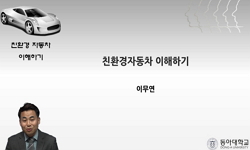본 논문에서는 일반균형모형을 활용하여 2014년 도입이 연기된 ‘저탄소차협력금제도(案)’ 및 2015년 시작된 ‘친환경차지원사업’이 초래하는 자동차 산업의 가격 변화가 거시경제 변수 및...
http://chineseinput.net/에서 pinyin(병음)방식으로 중국어를 변환할 수 있습니다.
변환된 중국어를 복사하여 사용하시면 됩니다.
- 中文 을 입력하시려면 zhongwen을 입력하시고 space를누르시면됩니다.
- 北京 을 입력하시려면 beijing을 입력하시고 space를 누르시면 됩니다.
친환경차 보조금의 경제적 파급효과 분석
한글로보기https://www.riss.kr/link?id=G3787523
- 저자
-
발행기관
-
-
발행연도
2017년
-
작성언어
Korean
- 주제어
-
자료형태
한국연구재단(NRF)
-
0
상세조회 -
0
다운로드
부가정보
국문 초록 (Abstract)
본 논문에서는 일반균형모형을 활용하여 2014년 도입이 연기된 ‘저탄소차협력금제도(案)’ 및 2015년 시작된 ‘친환경차지원사업’이 초래하는 자동차 산업의 가격 변화가 거시경제 변수 및 재정수지에 미치는 영향을 분석하였다. ‘저탄소차협력금제도’는 자동차 소비자가격을 인상시켜 자동차 산업의 생산 및 수입을 위축시키지만, 추가적인 세수를 소득세 감세 재원으로 활용하면 전반적인 타 산업 수요가 진작되어 거시적으로 성장촉진 및 고용확대 효과가 발생하였다. 반면 ‘친환경차지원사업’은 자동차 소비자가격 인하로 인해 자동차 산업 생산 및 수입이 촉진되지만, 재원 확보를 위한 소득세 부담 증가로 타 산업 수요가 전반적으로 위축되어 거시적으로 성장 및 고용이 위축되었다. 저탄소차협력금제도는 국산차 가격을 0.74%, 수입차 가격을 0.72% 상승시키지만 소득세의 실효세율을 0.07%p 낮추어 GDP를 0.03%, 고용을 감소는 0.004% 증가시키는 효과가 있었으며, 2015년 친환경차지원사업은 국산차 가격을 0.0868%, 수입차 가격을 0.0194% 하락시키지만 GDP를 0.004%, 고용을 0.0005% 하락시키는 효과가 있었다.
다국어 초록 (Multilingual Abstract)
In this paper, we analyzed the economic impact of two clean car subsidies of South Korea– The Korean Bonus-Malus system, which was postponed until 2020, and 2015 Clean Car subsidy- using a recursive dynamic single country CGE model. The Korean Bonus...
In this paper, we analyzed the economic impact of two clean car subsidies of South Korea– The Korean Bonus-Malus system, which was postponed until 2020, and 2015 Clean Car subsidy- using a recursive dynamic single country CGE model. The Korean Bonus-Malus system would increase consumer price of Automobile, and depress production and import of Auto industry. However, it generates sufficient tax revenue to finance an income tax cut large enough to offset the negative shock on auto industry, and improve GDP growth and employment. In contrast, current Clean Car subsidy would improve auto industry production by lowering consumer price. However, the extra fiscal burden to finance this subsidy would depress other sectors other sectors to the extend that the GDP growth and employment would actually decrease. The Korean Bonus-Malus system would have increased domestic car consumer price by 0.74%, import car price by 0.72%, but the revenue of this program was large enough to finance effective income tax cut by 0.07%p, improve GDP by 0.03%, and employment by 0.004%. The current Clearn Car subsidy would lower domestic car consumer price by 0.0868% and import car price by 0.0194%, but it would also decrease GDP by 0.004% and employment by 0.0005% due to extra fiscal burden.









